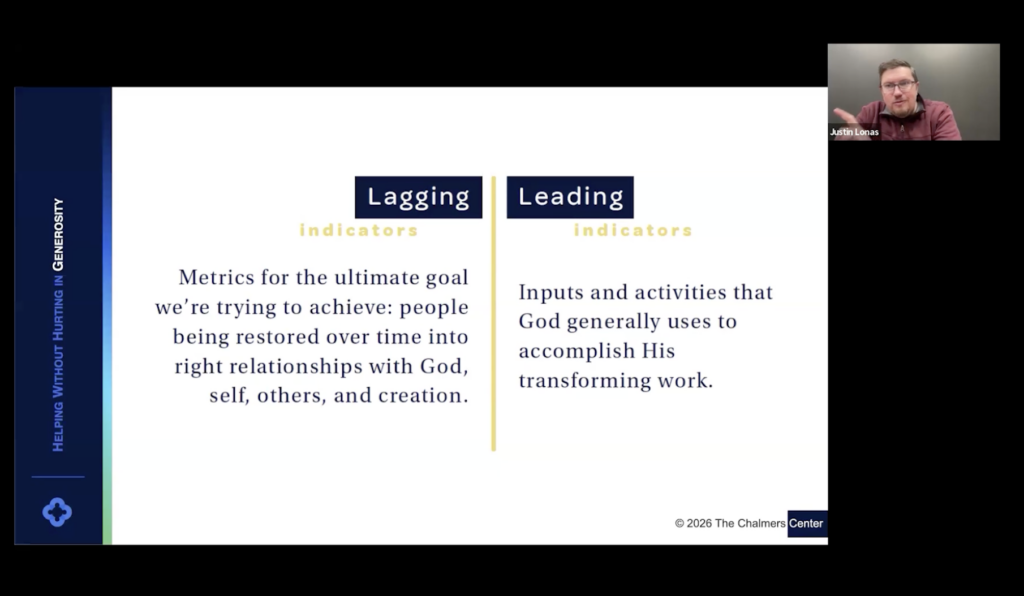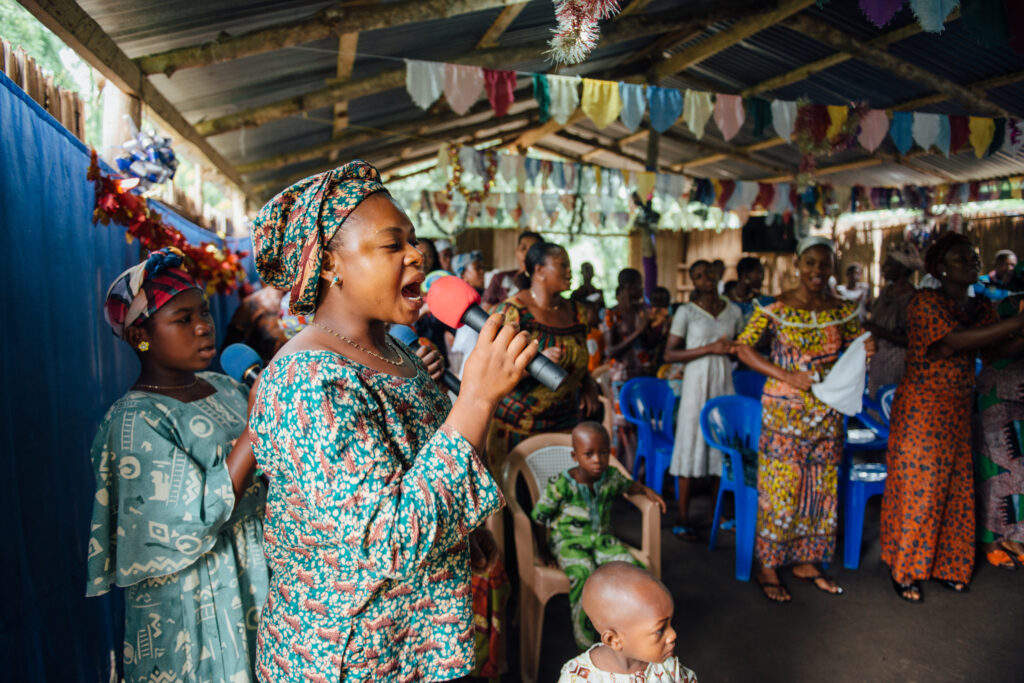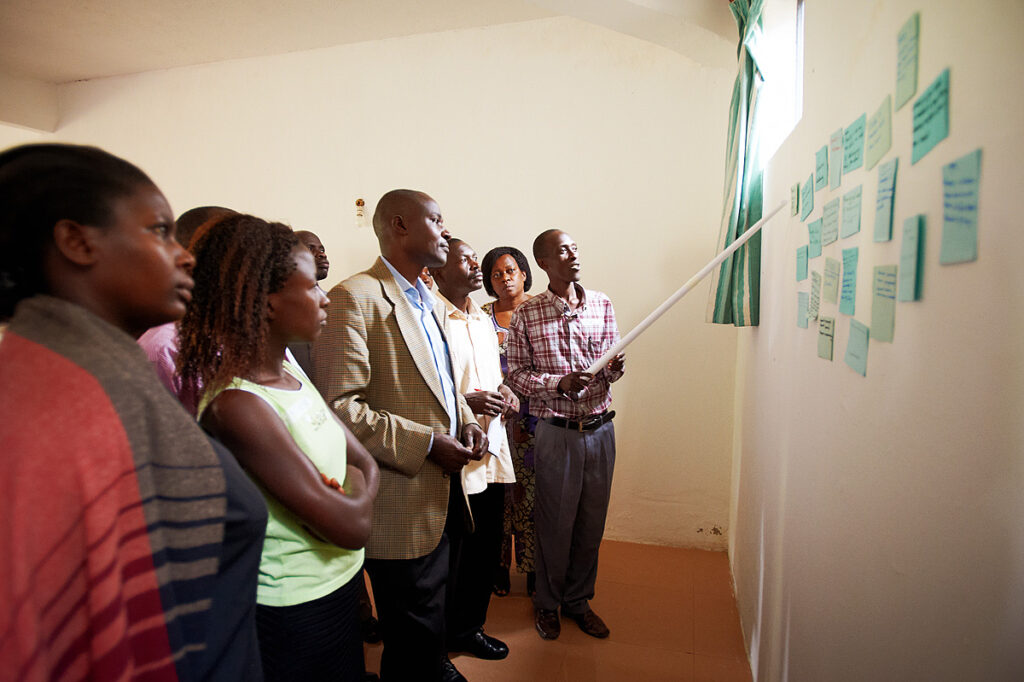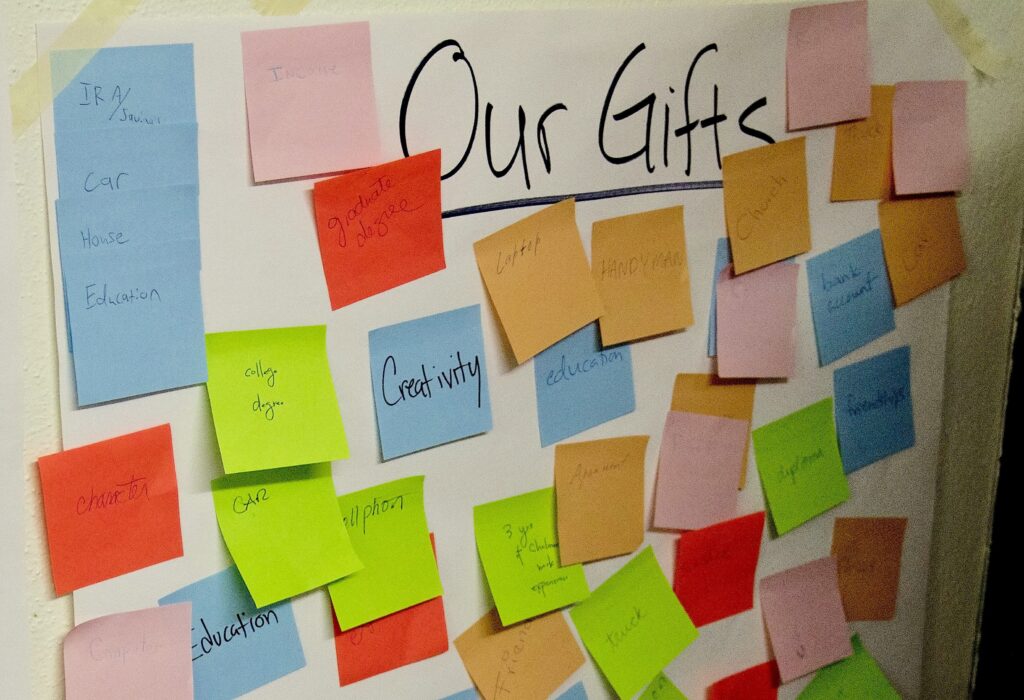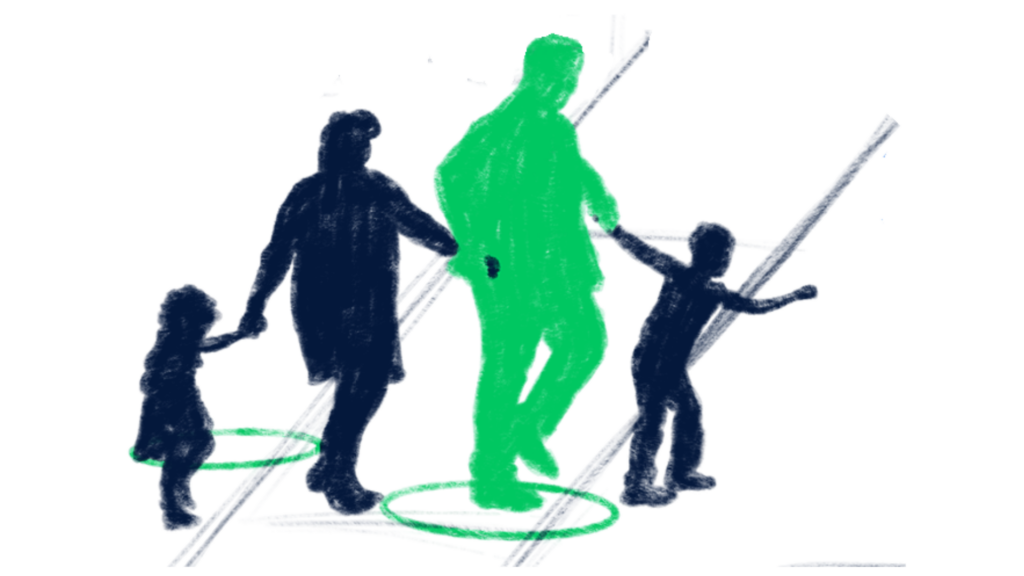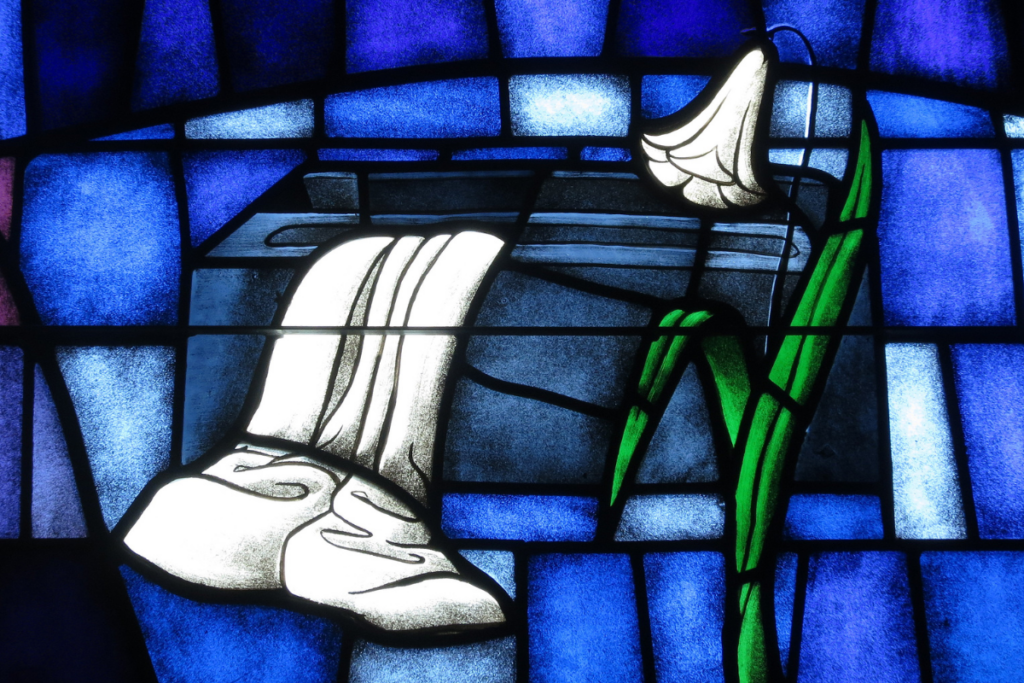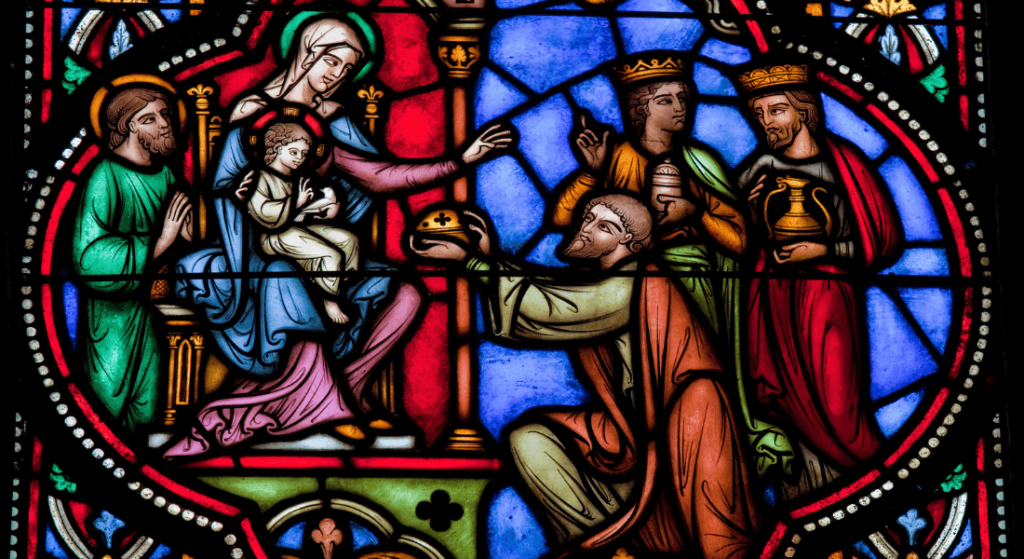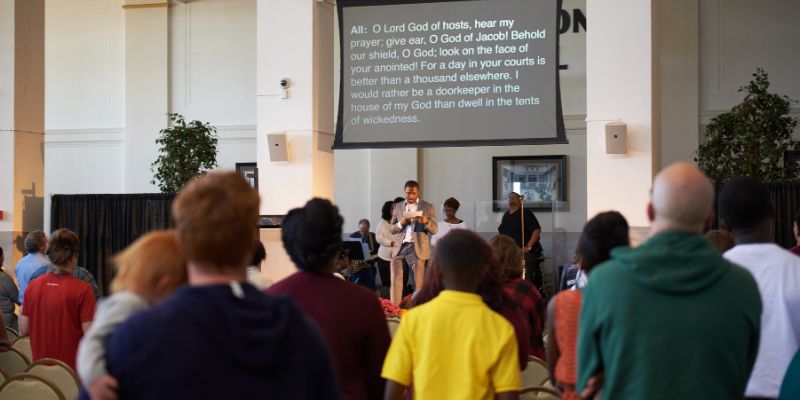Search
Categories
Tags
Posts in “Theology of Poverty Alleviation”
Partnering with Ministries Well…as Givers
Last month, Chalmers partnered with True Charity to share a framework for effective generosity in a joint webinar: Helping Without Hurting in Generosity: A Donor’s Guide to Effective Giving.
Advent and Poverty Alleviation
The longing of Advent infuses our work at the Chalmers Center. Our mission is to help God’s people rethink poverty and respond with practical biblical principles so that all are restored to flourishing.
We Need a Better Story
We often build poverty alleviation initiatives that are designed to help poor people pursue the American Dream. But what if all of us—poor and non-poor alike—need a different story?
Remembering the Bigger Story
Editor’s Note: This week, we’ve invited one of our newest staff members, Elijah Tanner, Director of Strategic Partners, to reflect on some ways his on-the-job learning with us is helping him see how God is at work in our lives and the ways we serve others
Measuring Impact in God’s Story—Part 2
As we wrap up our series on Generosity in God’s kingdom story, we’ve shared about the importance of giving in ways that lead to flourishing for both givers and receivers, and the challenges of measuring the impact of our work according to God’s story, and not just outputs of our ministry efforts.
Measuring Impact in God’s Story—Part 1
As we’ve been writing this month around the theme of Generosity in God’s kingdom story, we’ve shared about the importance of giving in ways that lead to flourishing for both givers and receivers. God calls us to live into God’s story of change: pursuing His goals but also His way of achieving those goals. This raises the question of effectiveness, though. How do we know that we’re giving well?
The Gift of Generosity: Lessons I’ve Learned From Our Partners
There’s a joy in walking alongside generous people. Over the years, I’ve come to see our gift partners not merely as supporters of Chalmers’ mission, but as fellow pilgrims on the journey of faith. Their generosity, wisdom, and trust in God’s provision have not only funded this work, but they’ve also shaped the soul of our organization. And they have taught me much.
Generosity for Mutual Flourishing
In a fallen world, we’ve all been shaped by false stories without realizing it. So we often support and create ministries that match our own goals and ideas. But if we are living in the wrong story, we can end up harming ourselves, the ministries we support, and the people they try to help.
Generosity in God’s Story
The Chalmers Center’s Faith & Finances curriculum helps churches and nonprofits around North America walk alongside thousands of individuals living material poverty grow in their financial stewardship each year. In each class, participants remember two key themes: 1) Jesus is making all things new, including our money and relationships; and 2) God has chosen to use our money to accomplish His work in the world.
Resting in Resurrection
Jesus’ resurrection isn’t merely a reminder of our hope that death is not the end. His resurrection empowers us for ministry because the Spirit that raised Christ from the dead is at work in us (Rom. 8:11). All our work is from Him, for Him, to Him, and through Him. In life and in death and in the constant interplay between them, we live and work in Christ.
Innovation is Looking for Shalom
In a video recorded as part of our Innovate:Online training, Director of Innovation, Tabitha Kapic shares that seeking Shalom is at the heart of innovation. Shalom refers to a sense of completeness, including the flourishing of creation and perfect relational peace. Shalom is the goal of poverty alleviation. As you watch, consider how you might use innovation to foster Shalom, both for yourself and those you seek to serve.
Remembering Why We Give: Incarnational Presence
Last month, we highlighted U.S. federal funding cuts and their impact on our ministry partners and global relief and development efforts. We urged you to respond by giving generously, encouraging affected organizations, and praying fervently—with a promise of next steps in the coming weeks.
Feasting Together: The Potluck Party of God
Scripture calls us as the people of God to care for those who are struggling economically. But so often, the metaphor for our compassion becomes the soup kitchen—we line up on one side of the serving line and scoop hot resources into the bowls of hungry people standing on the other side—instead of a potluck—where everyone has a place and everyone brings a plate.
Why Work Matters
God’s passion for work is a theme found throughout Scripture. One example found in the Old Testament is gleaning laws, which we explored in previous posts (HERE and HERE). In addition, Scripture also has a lot to say about why work matters, why justice for workers matters, and why we should care for those who are vulnerable.
Living As People of the Resurrection
The work of fighting poverty is a long and difficult road. For every joy and story of transformation, we can all think of sorrows and stories of loss and failure. Walking alongside people through the brokenness of the world is often a one-step-forward-three-steps-back process. It is easy for ministry practitioners and volunteers to grow weary and ministry participants to grow discouraged. Real hope for people and systems in a fallen world seems elusive, and anxiety is poor fuel for sustainable ministry.
Worship and Fighting Poverty
We don’t often connect our work in fighting poverty (and economic life more generally) with our worship of the living God. But we should. When the collection plate is passed around in a church service, pastors often try to connect the dots to how our giving is part of worship. But it doesn’t always register with us.
Epiphany and Poverty Alleviation
Epiphany also reminds us that our gifts (assets, skills, experiences, and callings) are rightly offered up as worship to the King of Kings. All the ministry efforts we undertake will fall flat if we seek to serve others for our own sake. We can truly love our neighbors as ourselves when we connect our love and service for others with our worship of the God who created us both and who sustains us all.
Addressing Brokenness through Ministry Design Principles
Over the last few months, we have reviewed the Ministry Design Principles established by A Field Guide to Becoming Whole, and today we look at the last five principles. Creating and stewarding God’s Kingdom Community means that we need to actively care about our stories, practices, systems, people, and spirits, which these twenty principles seek to address. Together, these principles help us steer our ministries toward a whole, flourishing community in Christ.


